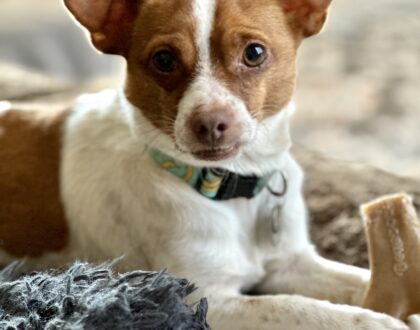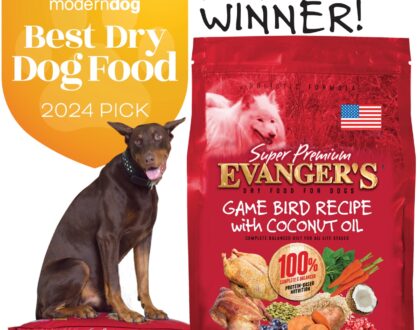Glyphosate in Pet Foods: What Are Glyphosates and How Can We Avoid Them?
by Chelsea Sher
When you consume food, you’re not just eating the basic components like a carrot or an oyster; you’re also ingesting the chemicals that have been applied to that food. This includes what the carrot has absorbed from the soil or what the oyster has taken from the water.
If these chemicals accumulate faster than they can be expelled, it leads to bioaccumulation.
Modern agricultural practices often involve chemicals like herbicides and pesticides, many of which can bioaccumulate in the food we eat.
One such chemical found in a wide range of foods, both for humans and pets, is glyphosate. Pet parents have called us about glyphosate, its presence in food, its potential harm, and ways to avoid it, so we’re going to share some input with you (summarized by DFA).
What is Glyphosate?
Glyphosate is a widely used herbicide that targets plant enzymes not found in animals. It is a potent chelating agent, binding soil minerals and making them unavailable to plants. Additionally, glyphosate has strong antibiotic properties, affecting both soil bacteria and the beneficial bacteria in the gut microbiome.
Why is Glyphosate Found in Food?
Glyphosate is absorbed by plants and is not broken down by cooking or food processing. This means it can persist in plant ingredients and make its way into pet food and human food.
Is Glyphosate Dangerous?
In 2015, the World Health Organization labeled glyphosate as a “probable human carcinogen.” Research has linked glyphosate to various health issues, including developmental problems, hormonal disruptions, and liver damage. It has also been associated with genotoxicity, which can lead to cancer by damaging DNA.
Alarmingly, this DNA damage can affect multiple generations. Your dog’s exposure to glyphosate today could impact their puppies and their puppies’ puppies!
Acceptable Levels of Glyphosate?
Studies have determined an acceptable daily intake of glyphosate for dogs at 1mg/kg body weight per day, with similar guidelines for humans. However, some studies have found glyphosate levels in commercial dog foods that exceed these safe limits.
How to Avoid Glyphosate?
Avoiding glyphosate is challenging due to its widespread use. It is commonly found in plant-based foods, whereas animal products do not typically contain glyphosate due to lack of bioaccumulation in animals. Hint hint: Evanger’s meat-dominant foods are a smart and convenient way to reduce your glyphosate risk.
Choosing organic pet foods can significantly reduce glyphosate exposure, as organic farming prohibits its use. For a safer choice, consider Evanger’s USDA Organic Dog and Cat Foods, which comply with organic standards and help minimize glyphosate risks.
Recommended Posts

How to Help Support Urinary Tract Health Issues for Cat Parents – Restricted Diet Solutions
April 01, 2024

Natural Relief for Your Dog’s Urinary Tract Infections
March 13, 2024



